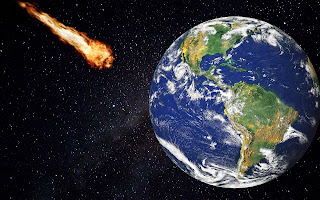Francesco Villi was an angry man who settled his differences violently. The fights he got into with his Toronto strata council were obviously like fire to the powder keg for a man like him.
And then last Sunday he just knocked on their condo doors and shot three of them dead, along with two of their spouses. What an awful, crazy thing.
Whenever these kinds of unthinkable events happen, it seems a natural instinct to question what could have been done differently.
Why wasn't something done about Villi back when he was an abusive husband and father? Shouldn't somebody have done something about his mental health? Shouldn't somebody have stopped him from getting a gun? Could anything have been done to divert the rage he felt toward the strata council?
Valid questions. Unfortunately, the shoulda/woulda/coulda questions don't mean much once the horrible deed is done and five innocent people are dead.
Short of a government initiative to attach a good Samaritan to watch over each of us for all of our lives in case we start to go off the rails, we'll rarely know until it's too late that somebody in our midst was on track to explode.
Media reports in coming days will doubtlessly carry news about the many warning signs from Villi's life. But who exactly do we expect should have even been adding up those warning signs, let alone acting on them?
The question of whether anything could have been done about Villi's escalating battles with his strata council, however - that one's got potential for reflection. In the event of a rock meeting a hard place, are there measures that could come into play before one or the other is smashed to bits?
Quasi-judicial system are exactly the kind of structures that attract, trap and ignite a person like Villi. I don't know how to characterize his kind of mental unwellness, but I saw so much of it in my journalism years related to courts, child custody, divorce, property disputes and bylaw breaches.
There is a type of Angry Man who absolutely loses his mind when caught up in disputes like that. The outcome can be horrific.
There is no excuse for Villi's actions. But in the interest of not having any more strata council volunteers gunned down by raging residents, this might be a good time to scrutinize the history of the fight between Villa and his strata council. Was there a point where it became excruciatingly clear that this was shaping up to be a battle to the death?
The people who sought me out as a journalist - the ones who turned to media as part of their escalation - had not yet reached the point of murder. But I could always hear the dangerous obsession in their voice as they related their stories.
They believed themselves to have been gravely wronged and repeatedly ignored (and in many cases, there were elements of that along the way). And now, they were pretty much on fire.
Our quasi-judicial systems don't do well with grey. They're designed to create winners and losers, and to shut people out entirely once they have run through the processes available to them. For a particular type of Angry Man, that point seems to mark where the escalation really begins.
Systems have to be fair, of course. Millions of Canadians co-exist peacefully with their strata councils. But any system in which one group's wishes dominates another runs the risk of a dispute moving into dangerous new territory. Having a red-alert clause and an alternative strategy before things get even uglier just seem like useful concepts.
Fathers killing their children; students killing their teachers; employees killing their bosses; tenants killing their landlords - virtually all of those terrible events generally have long back-stories of things going wrong between an increasingly angry person and systems where nobody ever steps back. They're often characterized as random acts of violence, but are rarely as random as they look.
Villi was clearly a disturbed man. He locked horns with systems that don't see their role as having to differentiate between the regular angry people and the seriously disturbed ones, and five people died. A person looking for a war met a system built to resist, and a terrible thing happened.




